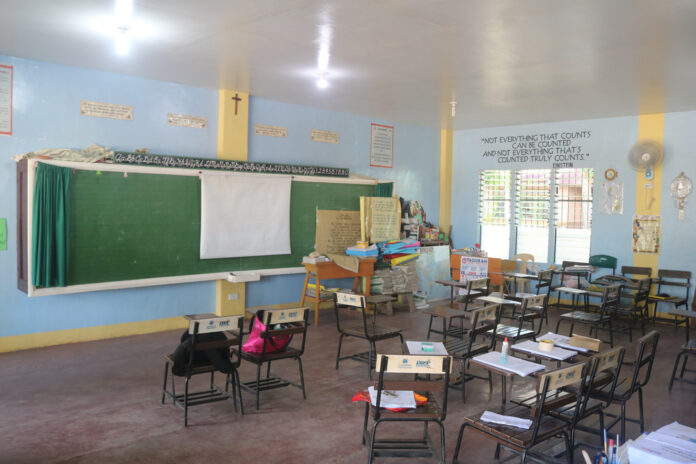The government needs to build at least 7,000 classrooms each year for the next 15 years to address persistent shortages and prepare for future educational needs, according to the Philippine Institute for Development Studies (PIDS), a government-owned think tank.
In a podcast titled “Classroom Shortages and Teacher Quality: Kaya Bang Mag-Level Up ng Polisiya?”, PIDS senior research fellow Michael Ralph Abrigo stressed the urgency of systemic, long-term infrastructure and policy reforms. The study, commissioned by EDCOM 2, warned that despite declining fertility rates, severe congestion remains in key regions like Metro Manila, CALABARZON, Region XII, and BARMM.
Data from 2021 showed that over 90 percent of northern Manila elementary students are crammed in overcrowded classes of 50 or more. Similar trends were reported in southern and eastern Manila, as well as in adjacent provinces such as Rizal (66 percent) and Cavite (57.7 percent).
While national school enrollment is projected to decline by 2040, regions like BARMM continue to face rising demand, requiring urgent infrastructure investment. Abrigo emphasized that classroom construction alone is insufficient. He called for coordinated, data-driven planning, faster deployment processes, and stronger support for under-resourced local government units (LGUs).
Abrigo also urged the Department of Education (DepEd) to focus on educational outcomes, recommending public-private partnerships, flexible scheduling, and shared facility use to relieve congestion. A national master plan, he said, must anticipate growth areas and enable classrooms to be built before overcrowding occurs.
The study underscores the policy implications of classroom backlogs, highlighting the need for structural reforms in both infrastructure planning and educational governance. Many aspiring teachers, it noted, aren’t intrinsically motivated; some colleges admitted have zero percent LET pass rates between 2012–2022, underscoring a serious misalignment in teacher education. Low participation in teacher training further compounds the issue—only 17.6 percent engaged in relevant programs in School Year 2023–2024, and much of the training offered is generic, bureaucratic, or not classroom-contextual.
In light of these findings, the PIDS calls for systemic policy upgrades, including strengthened public–private collaborations, agile budgeting mechanisms, flexible school scheduling, localized teacher training, and the development of inclusive, digital-responsive education programs.







